Navelbine 30mg Tablets
| Pack Size | Price | Price / Unit | Quantity |
|---|
Want to order in bulk / B2B price ? | Send Inquiry |
We do not sell this product
Category: Anti Cancer Tags: Damson Pharmacy, Navelbine 30, Navelbine Capsule 30mg, Vinorelbine Capsule 30mg Manufacture: Fareva Pau| SKU | 11352 |
| Manufacturer | Fareva Pau |
| Categories | Anti Cancer |
| Delivery Time | 10 - 14 Working Days |
| Strength | 30mg |
Introduction to Navelbine 30mg Tablets
Navelbine 30mg Tablets contain the active ingredient vinorelbine, which is a chemotherapy drug used primarily for the treatment of cancer. Vinorelbine is a type of Vinca alkaloid that works by interfering with the ability of cancer cells to divide and grow. This action helps to slow down or stop the progression of tumors.
Navelbine is commonly used to treat various cancers, including non-small cell lung cancer (NSCLC) and breast cancer. It may be used alone or in combination with other chemotherapy agents depending on the specific type and stage of cancer. The medication is typically administered under the guidance of an oncologist, who will determine the appropriate dosage and treatment schedule.
The tablets are taken orally, usually once a we ek, with the dosage tailored to the individual’s condition, response to treatment, and overall health. The treatment plan often includes periodic assessments to monitor the effectiveness of the drug and manage any side effects.
Navelbine 20 mg is manufactured by Pierre Fabre Australia Pty Ltd. It is a French multinational pharmaceutical and cosmetics company.
Uses of Navelbine 30mg
Navelbine 30 mg tablet, containing the active ingredient vinorelbine tartrate, is a chemotherapy medication primarily used for the treatment of certain types of cancer. It is classified as an antineoplastic or anticancer agent and belongs to the Vinca alkaloid class of drugs. Here are some of the main uses of Navelbine 30 mg tablet:
- Non-Small Cell Lung Cancer (NSCLC)
- Metastatic Breast Cancer
- Other Cancers
It’s important to note that Navelbine 30 mg is a prescription medication, and its use should be carefully determined by a qualified healthcare provider experienced in oncology. The treatment plan will depend on factors such as the type and stage of cancer, the patient’s medical history, and the potential benefits and risks of the medication. As with any chemotherapy treatment, discussions between the patient and their healthcare provider are crucial in making informed decisions about the course of treatment.
How Does Navelbine 30mg Works?
Navelbine 30mg (vinorelbine tartrate) works as an anticancer medication by interfering with the growth and division of cancer cells. It is classified as a Vinca alkaloid, a type of chemotherapy drug that targets the microtubules within cells. Microtubules are important components of the cell’s structure and are involved in various cellular processes, including cell division.
Here’s how Navelbine 30mg works:
- Microtubule Disruption
- Mitotic Arrest
- Apoptosis (Cell Death)
- Anti-Angiogenesis Effects
It’s important to note that Navelbine’s mechanism of action is not specific to cancer cells; it affects rapidly dividing cells in general. This is why chemotherapy drugs like Navelbine can also affect healthy cells in the body that divide rapidly, such as those in the bone marrow (responsible for blood cell production) and the lining of the gastrointestinal tract.
While Navelbine’s mode of action is effective against rapidly dividing cancer cells, it can also result in side effects due to its impact on healthy cells. The goal of using Navelbine and other chemotherapy drugs is to selectively target and destroy cancer cells while minimizing the impact on normal cells. The treatment plan and dosing schedule are carefully designed by healthcare providers to achieve the best possible balance between treating the cancer and managing side effects.
Side Effects of Navelbine 30mg
Common Side Effects
- Nausea and Vomiting
- Loss of Appetite
- Fatigue
- Hair Loss
- Constipation
- Mouth Sores
Serious Side Effects
- Bone Marrow Suppression
- Infections
- Severe Allergic Reactions
- Respiratory Issues
- Neurological Effects
Rare Side Effects
- Severe Liver Toxicity
- Severe Skin Reactions
- Severe Gastrointestinal Reactions
- Cardiovascular Effects
- Anaphylactic Reaction
Dosage of Navelbine 30mg
How To Manage Side Effects?
- Communication with Healthcare Provider
- Follow Medication Schedule
- Stay Hydrated
- Manage Nausea and Vomiting
- Address Fatigue
- Manage Constipation
- Address Neuropathy (Nerve Damage)
- Oral Hygiene
- Blood Count Monitoring
- Stay Active and Maintain a Balanced Diet
- Seek Emotional Support
Warning & Precautions
- Administration by Healthcare Professionals
- Pregnancy and Breastfeeding
- Bone Marrow Suppression
- Increased Risk of Infections and Bleeding
- Allergic Reactions
- Liver and Kidney Function
- Lung Problems
- Neurological Symptoms
- Heart Function
- Gastrointestinal Issues
- Secondary Leukemia
- Interaction with Other Medications
Safety Advice
- Medical Supervision
- Dosage and Schedule
- Pregnancy and Contraception
- Breastfeeding
- Blood Counts
- Preventing Infections
- Handling IV Infusions
- Heart Health
- Lung Health
FAQs – Frequently Asked Questions
1. What is Navelbine 30 mg used for?
Ans. Navelbine 30 mg is a chemotherapy medication used to treat certain types of cancer, including non-small cell lung cancer and metastatic breast cancer.
2. How is Navelbine 30 mg administered?
Ans. Navelbine 30 mg is typically administered as an intravenous (IV) infusion by healthcare professionals in a clinical setting, such as a hospital or cancer treatment center.
3. What are the common side effects of Navelbine 30 mg?
Ans. Common side effects of Navelbine 30 mg may include nausea, vomiting, fatigue, constipation, hair loss, and changes in blood cell counts. It’s important to communicate any side effects to your healthcare provider.
4. How often will I receive Navelbine 30 mg treatment?
Ans. The frequency of Navelbine 30 mg treatment will be determined by your healthcare provider based on your specific cancer type and treatment plan.
Be the first to review “Navelbine 30mg Tablets” Cancel reply
Related Products
Anti Cancer
Anti Cancer

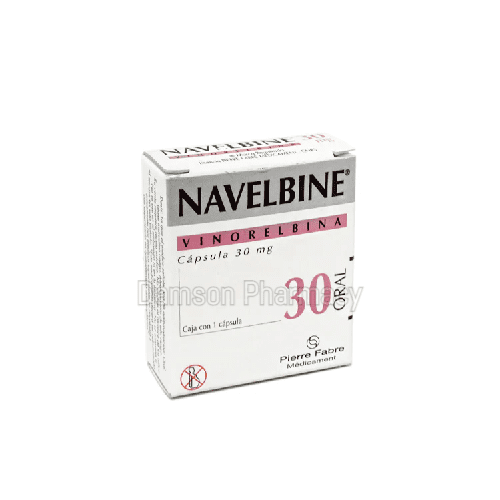
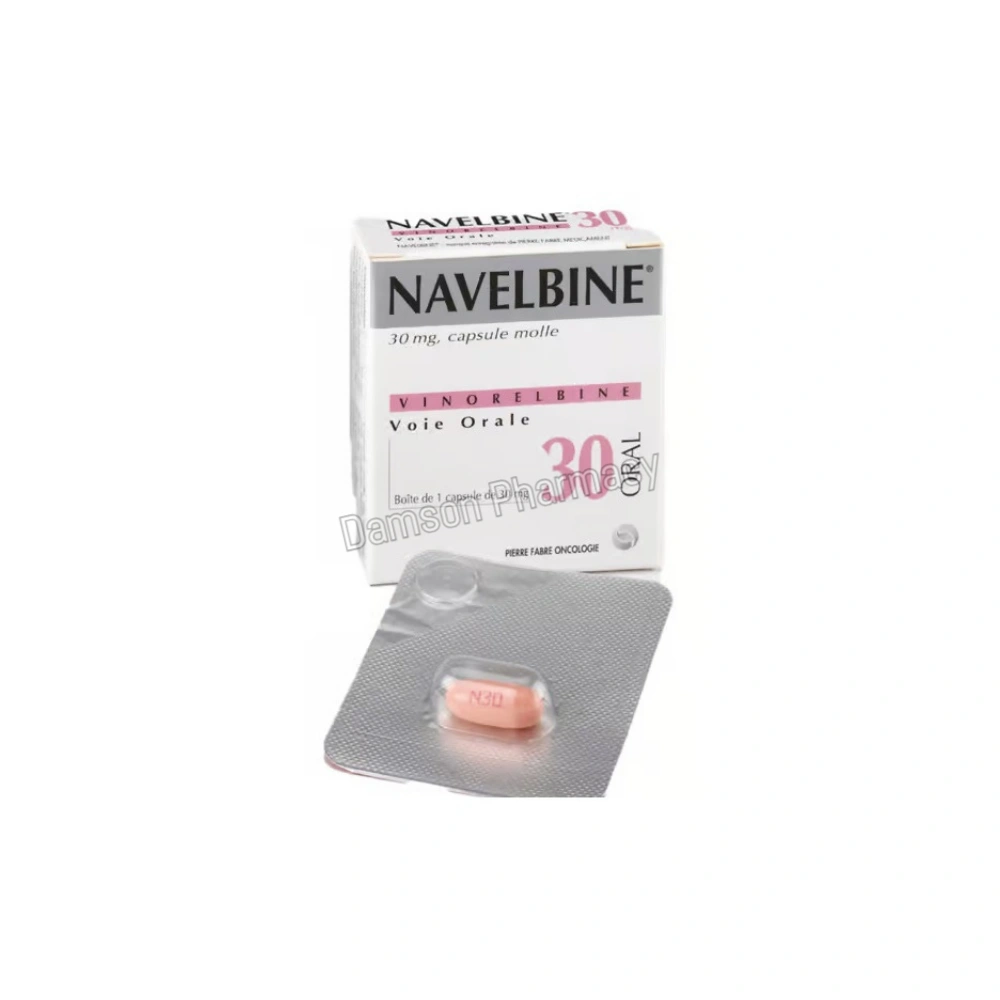
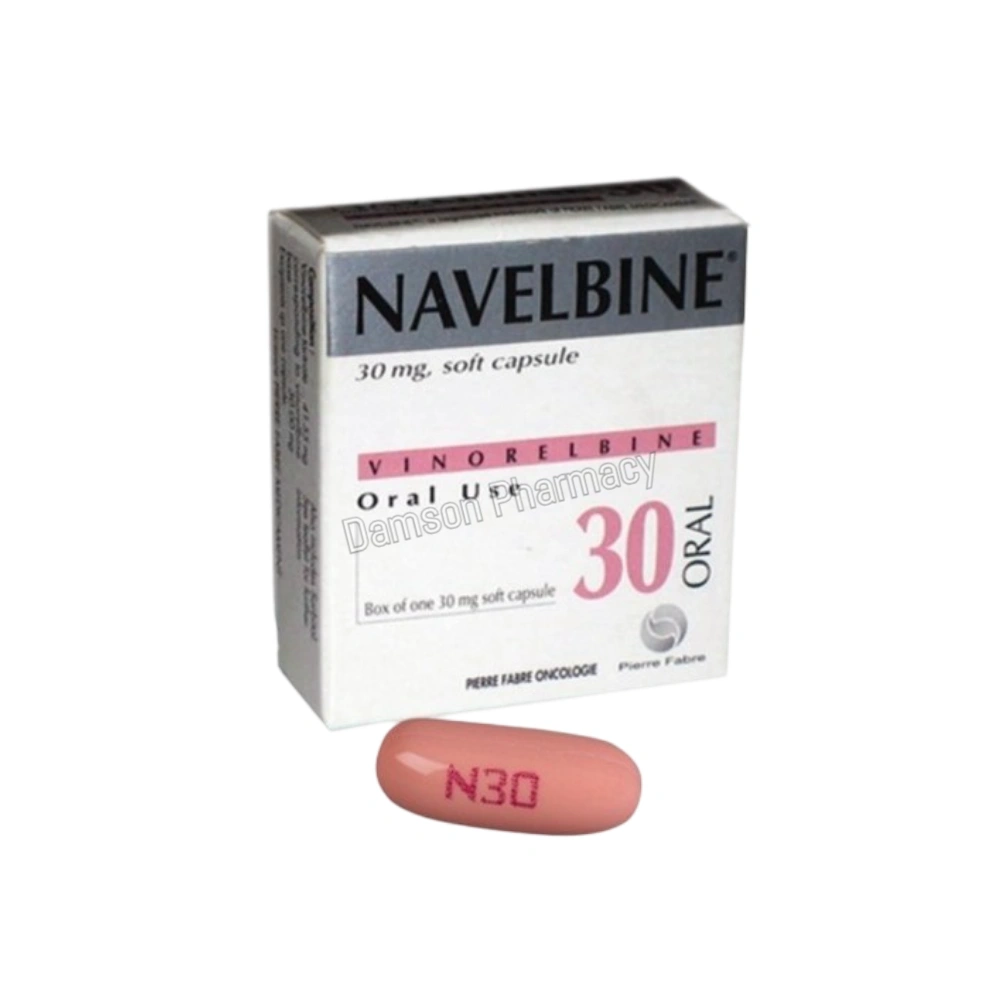
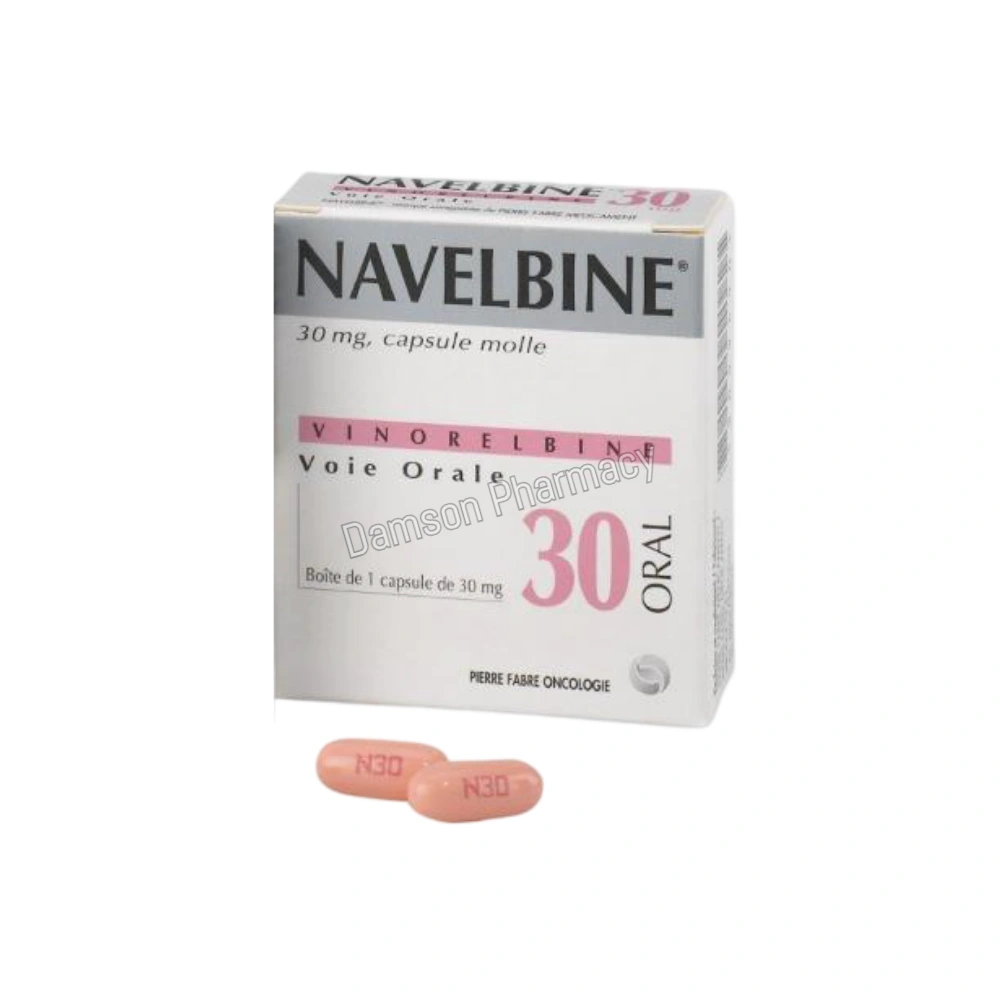
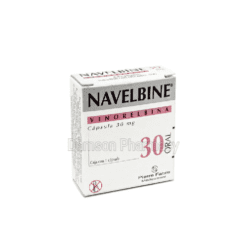
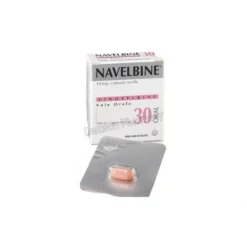
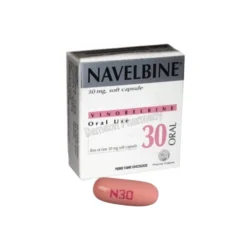
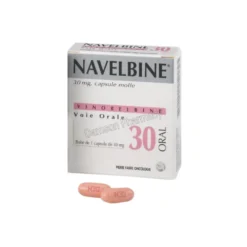
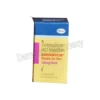
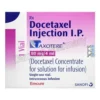
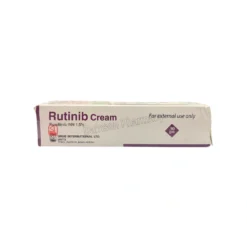
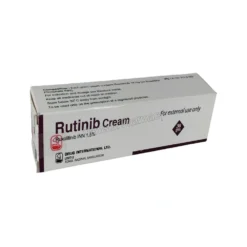
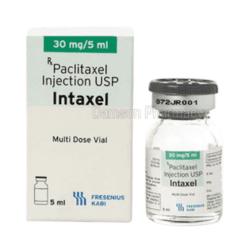
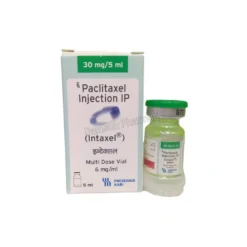
Reviews
There are no reviews yet.